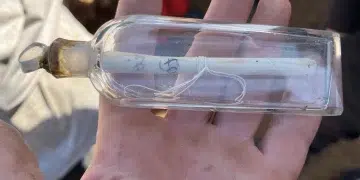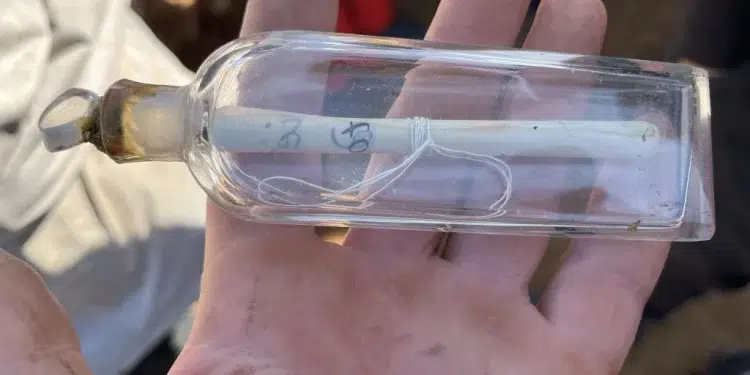During an archaeological excavation in northern France, volunteers made a surprising discovery: a 200-year-old message in a bottle. The vial, containing a neatly rolled letter, was found buried in a pot at an ancient Gaulish village site.
The letter was written by archaeologist P.J. Féret, who documented his work at the Cité de Limes, also known as Caesar’s Camp, in January 1825. In the note, Féret describes himself as a native of Dieppe and a member of various intellectual societies. He detailed his ongoing excavations at the historic site, hinting at the vast scope of his investigations.
The town of Eu, located in Normandy and supporting the dig, shared the relic on its Facebook page. Guillaume Blondel, the head of the town’s archaeological service, described the moment as magical.
“We knew there had been past excavations, but to discover this message from 200 years ago was completely unexpected,” Blondel said. “Time capsules like this are rare in archaeology, where most believe their work will be final. This discovery is a testament to the enduring curiosity of the field.”
The find has ignited renewed interest in the historic site, as Féret’s message offers a unique glimpse into the early 19th-century archaeological practices and their connection to modern digs.























